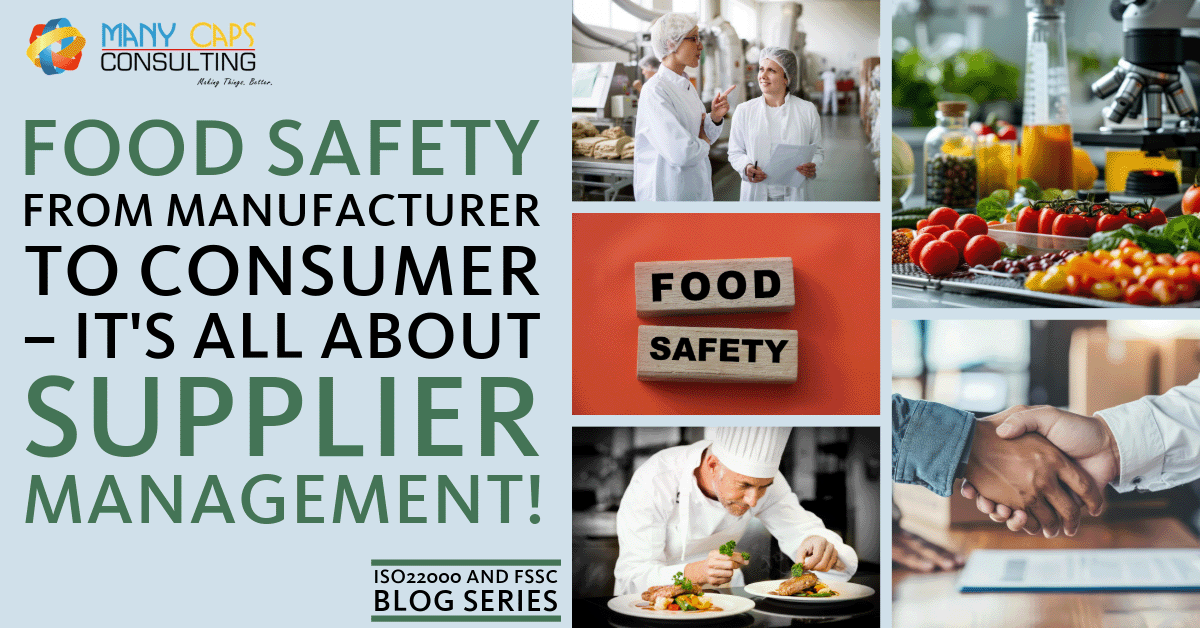Food fraud has been around a long time and is generally considered as "intentionally causing a mismatch between product claims and product characteristics" (everyone has their own definition!).
For FSSC certification, Clause 2.5.4 calls for a Food Fraud Mitigation assessment and plan on how to minimize the risks, for very valid reasons.
Sellers trying to pull one over on their customers goes back as far as ancient Rome and unfortunately New Zealand is not immune to this issue, although we certainly are at lower risk than some. Earliest examples were of wine mixed with honey, sawdust in bread and baking copper pennies into loaves of bread to increase the weight.
There is a lot more expectation these days that food producers and sellers consider the risks in their supply chain or even within their own business and take measures to mitigate it. So the onus falls on you, as a manufacturer, to manage the issue.
Everyone generally knows about, and is practising, HACCP in the food industry, but standards for VACCP (Vulnerability Assessment Critical Control Points) are increasingly required for certification or customer acceptance (as anyone with YUM! Accreditation will be familiar).
While there is risk for all products and the list will highlight where potentials may be in your own supply line, there are certain industries that are particularly vulnerable, so pay special attention if your product or raw materials you use are included below:
Honey
This one has a strong local impact, with our highly prized Manuka honey on the line, as sometimes other honeys are falsely labelled as Manuka to command higher prices. It can also be diluted with sugar syrups to increase volume. | Spices
Spices are often subject to food fraud with cheaper ingredients; saffron mixed with turmeric and sawdust in chili powder are a couple of examples. Turmeric laced with lead chromate, a toxic substance, has been a more concerning one, though not in NZ shops luckily. |
Grain
Chalk added to flour for bulk and cheaper rice varieties mislabelled as their higher priced alternatives have been recorded.
| Milk
Most of us will be aware of the infant formula contaminated with melamine in China, which led to the mass hospitalization, and in some cases unfortunate deaths, of infants as a result. It can also be filled out with water to increase volume and reduce costs. |
Coffee and Tea
Coffee is a popular and also valuable product and so often subject to food fraud with cheaper ingredients, such as corn, soybeans or even twigs!Because coffee and tea are generally sold in ground/reduced form it's very difficult to tell by sight if there might be an issue. | Wine
Anything from bottles for older vintages being re-used, dyed Merlot being passed off as Pinot Noir, to diluted spirits used is common. While not a large issue in NZ, there have been a few landmark cases of falsifying vintages, adding sugar and not complying with export conditions required. |
Fruit Juice
Water is often used to dilute and fill out fruit juice, and in NZ there have been instances of juice being recalled after being shown to contain little to no fruit at all! | Olive Oil
This one was one of those in that Ancient Rome example I mentioned at the start! Clearly some things never change. More recently, olive oil was sold as extra virgin, while containing 93% Canola oil, a much cheaper, inferior product. |
Organic Foods
Manufacturers
falsely claiming product as organic has been endemic around the globe including
our own local producers. | Fish
Fish is often substituted for inferior / more common species.Also farmed fish being labelled as wild-caught. |
In today's global environment, larger cases can have catastrophic outcomes for the entire market and/or all the supply chain involved, with the likes of the melamine milk or horse meat scandals going global almost instantly. This can lead to a loss of faith in the entire industry (listeria in lettuce anyone?) as the risk-adverse consumers play it safe. The damage can run to the millions, outside the cost of the suspect product itself.
It is next to impossible for consumers to identify food fraud issues initially, so it's up to the manufacturers and retailers to put measures in place to help minimise the risk, particularly if you happen to have any of the top ten in your supply line. So, make sure you know your supply lines and have taken steps to ensure the safety of your raw materials or products, so you and your customers can breathe a little easier!
A VACCP risk assessment should be carried out to identify where your highest risks are and what controls might be needed.
Utilise industry body knowledge where possible on what the highest risks are for your products.
Certified suppliers, random or regular testing and audits are always to ensure the safety of your customers.
If you aren't sure how to go about managing those suppliers, and that you are not adding to the risk, we have some handy tips in our article:
Ready To Start Your ISO22000 Journey?
Make a booking now and find out how we can help you Simplify Compliance, Improve productivity and engage people.
Ready To Start Your ISO9001 Journey?
Make a booking now and find out how we can help you Make Things, Better
Simplify FSSC and ISO22000 with Mango
Stop waisting time with multiple different systems, see how Mango can manage all of your ISO22000 or FSSC requirements in one fully integrated solution.
Make a booking now to see how simple it is to integrate your systems, reduce paperwork, save time and be compliant.
Reclaim your precious time






Comments